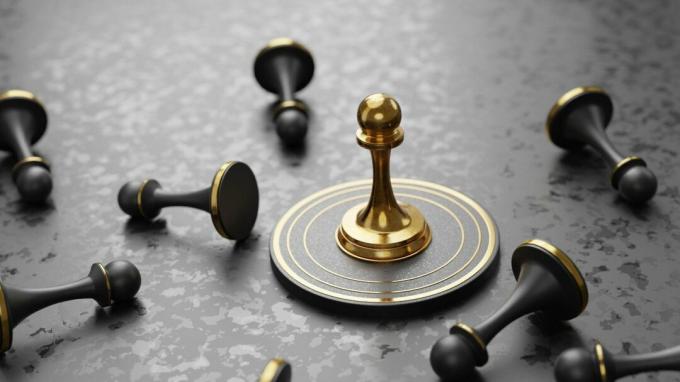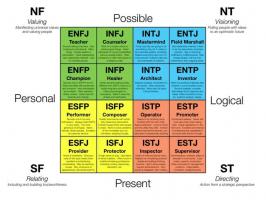How to be my best version: a narrative from the neurosciences
The first invitation that I want to make is to review what is the concept you have installed of success, what is the point of being a successful person and when you look in the mirror, you reflect happiness. So what is success? The first mental image we receive is a person (man or woman) traveling, surrounded by friends, with prosperity and financial balance..
What I am describing to you has to do precisely with the mental programming associated with culture, with the ways in which we interpret the world, that is, with subjectivity. Success is related to what is important to me, there is no absolute concept that describes it, it would be petulant and rude of me to attribute a single concept par excellence because in the end, I am going to end up talking about what I matter.
- We recommend you read: "John Wooden's Pyramid of Success: What is he and what is he proposing"
What is success?
Success is a state of constant flux that allows me to connect mainly with myself, with my desires and my dreams.
. Reaching it implies a constant search that takes us time to process and understand; In addition, it leads us to face obstacles that allow us to forge character and lay the foundations of determination. Success is the deepest way I have of relating to myself, it is an attitude that allows me to sustain reality and the challenges of life itself; Failure is implicitly contained in success, for only when you have allowed yourself to experience failure can you feel the joy and inspiration of success.A successful person is one who is capable of choosing her own path and being responsible for what it delivers. A successful person takes care of himself and the people around him because he understands the importance of belonging and being a community. He is not afraid of losing because he recognizes that it is part of the life experience. You can always rebuild the idea and perception that I choose to have of myself and everything that surrounds me. surrounds you, as many times as necessary until one day you wake up with the certainty of being present and alive.
And then language appears, that way we have of communicating. Language is one of the most powerful tools that we have been able to develop and that allowed us to evolve as a species; language gives shape, meaning, and nourishes our experience, it gives us an identity that allows us to collect memories that later give meaning to our own existence. Language is our best ally.
With each word that I emit, I represent my being
So what is language and how does it determine me? Language is nothing different from a system of oral, written or gestural signs that serve as a bridge to express and communicate. Communication is one of the most powerful representations of language since it has allowed us to group and congregate as a species., until taking us to the point of being the most evolved species. Language has multiple functions, to mention a few:
- Referential or informative function: Use of language for the sole purpose of communicating certain information, without issuing a value judgment, without generating any adverse effect on the recipient.
- emotive function: Deliver a message that attempts to convey some mood, feeling, or emotion.
- appellate function: Seeks to generate a reaction from the sender (who delivers) to the receiver (who receives), either for the action or the omission.
- phatic function: The communication is focused on the transmission channel and what is tried is to verify that it is still open, to give continuity to a communication.
- aesthetic function: Language seeks to beautify. Communication focuses on language itself, which is used for the purpose of creating beauty. This function is used in novels, stories, poetry, songs and other creations. At this point, the form of the language prevails, but not its content.
- linguistic function: Communication focuses on the code, a language is used to talk about itself or another.
Understand, then, that language has so many uses that the sender wants to give it and so many interpretations that the receiver is willing to receive. Now, have you wondered, what are internal dialogues? Very often we listen to that internal voice, which is characterized by emphasizing our mother tongue and gives us ideas, reproaches, guidelines, shows us realities that sometimes we do not dimension, internal dialogues are connected to our emotional brain, especially with our amygdala, which is in charge of storing our emotional memories. These dialogues converge in such a way that it provides us with conscious and often transcendental information.
All of the above to remind you that language determines you in all possible ways, and also allows you to create your reality from your narratives. Take care of your words, because they speak of you. Have you ever wondered what people you are surrounding yourself with? And why do I bring this question if we are building from ourselves? Well, the other generates an impact on my reality, the other also invites me to be better, questions me and from empathy establishes a bridge.
Try to surround yourself with vitamin people, those people who are willing to listen, to be a cooperation channel, caring people, who do not relate from reproach, but from the positivity, people who invite you to be light and beacon, people who can hold deep conversations. And this explained in a more scientific sense, let's remember mirror neurons; how do they work?

The role of mirror neurons
Mirror neurons are cells of the nervous system that are responsible for transferring information through chemical signals and electrical, are a type of neurons that are activated when an action is performed or when other people are observed executing actions, that is to say, when a person performs an action in front of us, these neurons display a mental representation of the action even though we are not performing it.
They work like an invisible network, they invite us to unite with people and allow us to learn from them, enabling us to understand what the other feels, just by observing his actions. They are located in different areas of the brain and have a great influence on cognitive functions, such as perception, motor skills, language, learning and attention:
- frontal lobe: movement planning and execution
- parietal lobe: Connect with our senses.
- insular crust: Connect with emotions and pain.
- cingulum: Connect with pain and emotions.
Empathy is one of the main functions of mirror neurons and this is understood as the ability we have to connect with the reality of the other., it makes it easier for us to relate to the other, it even allows us to recognize the emotional state of people. Learning tends to develop by imitation, which is why mirror neurons allow us to develop new neural connections, it is noteworthy that the relationship between neurons mirror and imitation is very strong, in fact, without them, our way of imitating would change completely, evidencing a great weight when it comes to learning language and of course communication. This is how we are programming ourselves to recognize facial gestures, body movement, facilitating non-verbal communication.
In conclusion, mirror neurons allow us to anticipate the thoughts, feelings and intentions of others, which are essential to lead a full and satisfying life. And the concept of memory cannot be left out of this narrative. Memory is as complex as its name implies. Memory is key to learning processes and of course for adaptation to the environment.
Sensory memory is directly connected to the senses, as it allows us to save impressions and information once we perceive the stimulus.. His storage is limited, his perception is extraordinary. Maybe you remember that time you were walking down the street and a smell took you to a place, or maybe it brought you the face of a person, or maybe an emotion generated you, your body reacts in some way with the stimulus stored in our memory sensory.
Sensitive memory also enables us to perceive signals, for example when you are driving your car it allows you to follow traffic signals. It has a close relationship between perceptual systems and cognitive processes, this is how we nurture our memory processor. information that at the end of the day will allow us to connect the inner world with the outer world and take the best access routes starting from our intentions.
Do you learn to be a better person?
In short, yes, being a good person is continuous learning, and the latter occurs in different ways. All our perceptual channels in a state of alert are open to receive information from the environment, and we are nourished by ideas that they end up being more complex thoughts about how the world is seen and we weave that relationship and interaction with ourselves, with the self and with the other.
Being the best version of me is an act of self-love, it is a reconciliation with the Self. Understanding that life is like a boomerang, I get not what I want but what I am, which is why we must improve that version of myself. Gratitude. Being grateful is one of the most powerful tools, it invites you to connect with who you are and to raise your own awareness, it allows you to flow from possibility and not from lack.
Accepting allows you to break down value judgments, whoever accepts does not suffer. Acceptance is one of the sources of greatest emotional benefit. Definitely you can learn to be a better person, and when we talk about the good or the bad it is not associated with a moral system, but rather with the way in which we relate to ourselves and to the around. The Neurohackin is a very useful tool to accompany the therapeutic processes, this refers to an individual and personal training system designed to adapt to the current environment.
An environment that is hostile (aggressive), with a scarcity of resources and with a constant need for stimulation, bombardment of stressful and addictive stimuli. In my therapeutic practice I have developed some programs that facilitate this training, it has been very useful for people who present symptoms associated with anxiety, depression, or simply people who seek to have a more caring relationship with themselves and with the environment in which they are develop.



